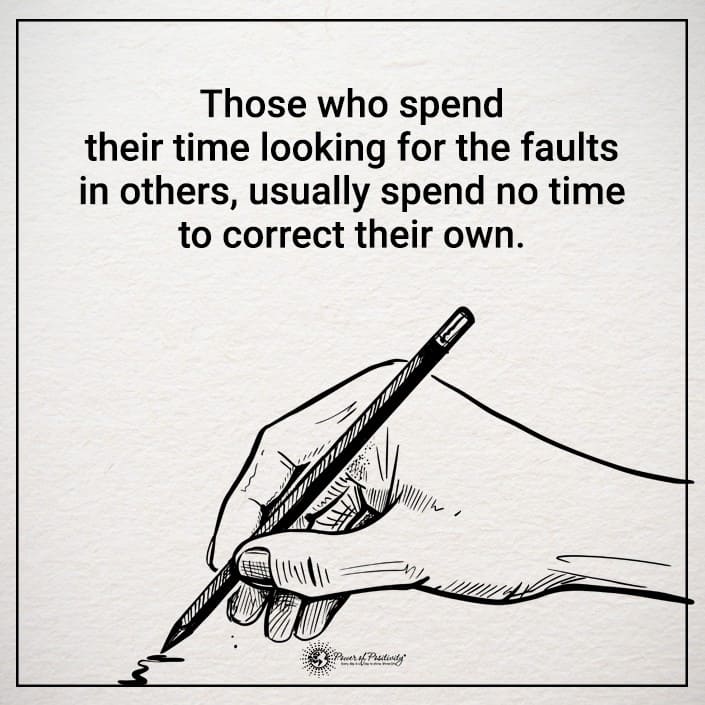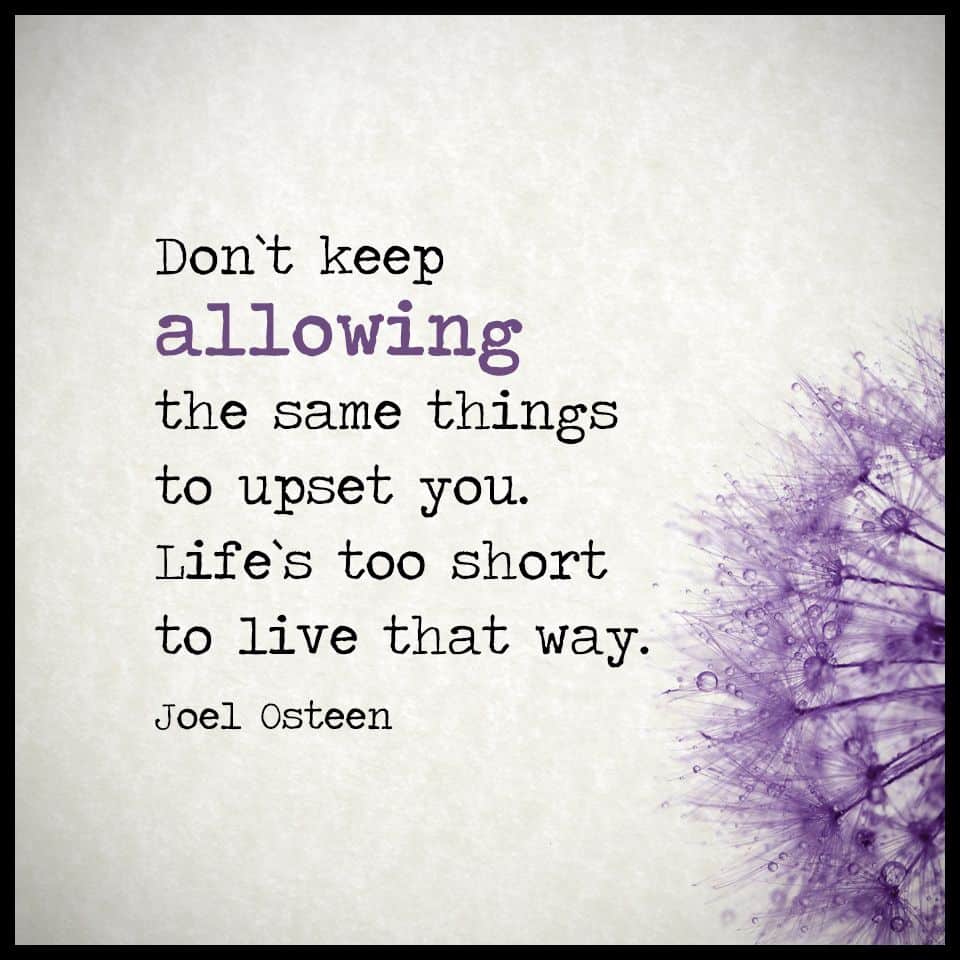For some people, it seems impossible to take responsibility for their mistakes. While this behavior can be infuriating, it may be easier to accept if you understand it.
People like this often blame their mistakes on someone or something else, rather than admitting any role in it.
If you or someone you know struggles with taking responsibility, there are reasons behind it. Oftentimes, this behavior isn’t intended, and they truly don’t want to be this way. They tend to be negative and harbor pain or distress, which contributes to the behavior.
Not taking responsibility for mistakes can present itself in different ways. It can make the person vulnerable, and it will also cause them to do the following:
- place the blame on someone or something else
- make excuses for what has or hasn’t happened
- not owning up to something that they have done
- often say something along the lines of, “it’s not my fault.”
While bad things happen in life, it is important to take responsibility for some of it. While it may be hard to understand why some people struggle with this, counselors explain the reasoning.
Ten Reasons Why Some People Won’t Take Responsibility for Mistakes
So what causes people to refuse to take responsibility for the errors of their ways? Here are ten.1 – They Think Refusing to Take Responsibility Will Benefit Them
People usually avoid taking responsibility for their mistakes because they think it will benefit them. It happens when the person can’t think of another solution or feel that they can’t handle it. They think that avoiding responsibility is easier than holding themselves accountable.
2 – They Have a Victim Mentality
Counselors reveal that this is sometimes caused by the person having a victim mentality. If someone has a victim mentality, they feel that bad things happen to them and that other people are to blame. They also believe something always prevents them from succeeding, so they don’t even try.
Oftentimes, they believe that there is no solution to their problem. The person gives up and believes that it didn’t work out because of the obstacle rather than admitting it was because they didn’t try to find a solution.
3 – They Feel Powerless
People who don’t take responsibility for their mistakes also may feel powerless. They want things to go well, but it seems that they can’t do anything about their life to make them better. This is often because they think change is impossible or will never work out.
4 – They Use Negative Self-Talk
Counselors also reveal that negative self-talk or self-thoughts contribute to this behavior. People believe that bad things only happen to them and that they deserve all of those bad things.
5 – They Fear Rejection and Feel Like No One Cares About Them
They often feel like no one cares about them, so they don’t want to admit their mistakes because they are afraid of further rejection. Their fear of making others angry or disappointed in them is too great to admit fault when it is necessary.
6 – They Do Not Take Responsibility Because They Lack Self-Confidence
Another reason for being unable to take responsibility is a lack of self-confidence or self-esteem. They may not think they are good enough or smart enough, and they won’t work on being better. Plus, they won’t try anything new.
7 – They Harbor Negative Feelings
Frustration, anger, and resentment can all contribute to someone not taking responsibility for mistakes, too. When these negative feelings take over, it feels better to blame someone else or think of how someone wronged you. They also don’t like to see other people being happy and successful.
8 – Refusal to Take Responsibility Is a Defense Mechanism
Past trauma often contributes to not taking responsibility. It develops as a coping mechanism, and it can be hard to change it once the situation ends. When they think a situation will be challenging, they will deny responsibility to avoid dealing with the problem.
9 – They Feel Like They Are Losing Control
People who avoid taking responsibility would blame their behavior on someone else if they lost control. If they lost their temper or said something hurtful, they will blame the other people for making them say it. They do this because they feel like they have lost control and always need to always feel in control.
10 – They Have a Fragile Ego
This type of person wants to feel better than others and that they are right and others are wrong. To do this, they will blame their mistakes on others or make it seem like someone else caused them to fail.
How to Change This Behavior if You Don’t Take Responsibility for Your Actions
If you are struggling to take responsibility for your mistakes, there are ways to change that behavior. Likewise, if someone you know struggles with taking responsibility, you can help them make a change.
1 – Find a Solution
Instead of giving up and blaming it on the obstacle, figure out a different option. There is always a way to reach your goal and live the life you want to live. Find a solution to the problem, and don’t give up until you do.
While it’s fine to mope a little when something doesn’t work out, you have to get past it. This is the only way to figure out what works and then move in that direction. Once you can successfully find a way through your problem, you’ll begin to take responsibility for mistakes in the future.
2 – Change Your Mindset
If your find yourself having negative self-thoughts, change your thought process. Start saying positive affirmations to help you get out of the negative mindset. This could make a huge difference in your life and help you take responsibility for your mistakes.
3 – View Everything as a Learning Opportunity
You will learn and grow if you view everything as a learning opportunity. This will allow you to admit your mistake responsibility because you will recognize the benefit. Viewing it as a learning opportunity will help you avoid future problems, allowing you to grow.
4 – Consider What Will Happen
If you find yourself wanting to avoid responsibility, think about what it will achieve. You won’t learn from the situation, so avoiding responsibility won’t help you in the long run.
Consider what will happen if you do own up to it, too. Not only will you be learning, but you won’t be left with guilt or anxiety. Admitting to the mistake likely won’t impact you long term, anyway, so it’s best to get it out in the open.
5 – Take a Deep Breath
If you feel like you are losing control of your emotions, stop and take a deep breath. Then, think about what you are going to do. Don’t let yourself react automatically when you are in that emotional state because you are the one in control of your emotions.
6 – Think About What Is Making You Feel So Bad
When people don’t take responsibility for their mistakes, it is often caused by negativity, as explained before. Think about why you feel so bad and make a change in that area of your life.
How to Respond When Someone in Your Life Refused to Take Responsibility
If you aren’t the one who avoids taking responsibility, then you likely know someone who does. It can be hard to communicate and spend time with them if they always behave this way. There are ways to remedy the situation, however.
Explain the Behaviors That Bother You
Start a conversation with the person about their behavior and the way it bothers you. Don’t attack them, but explain that the way they won’t take responsibility is frustrating to you. They may not realize that they do this and, while it might be an uncomfortable conversation, it will help.
Set Boundaries
Being around this person won’t make you feel good if they are always shifting responsibility. If this happens, you will feel bad when you are around them. Nicely, let them know that you see through it and then give yourself some space when needed.
Offer Help
Walking away from someone isn’t always an option, especially when you love them or have to work with them. In both instances, finding a solution that will work for both of you is best. While doing this, you must avoid making them feel bad about their behavior.
Offer solutions that might help, and offer help with those solutions if they need it. Offering solutions could open them up to other options and get them thinking about other things. Remember not to tell them what to do, but to offer suggestions, instead.
Final Thoughts on Understanding Why Some People Refuse to Take Responsibility for Mistakes
While it is frustrating when people won’t take responsibility for their mistakes, you can try to understand them now. Most people don’t want to be this way, and some don’t even realize that this is how they are.
If you are the one who struggles with taking responsibility, you can make a change in your life. This change can help you take responsibility, grow, and move forward in life. You can also try to help others change if someone in your life struggles with taking responsibility.

















 Community
Community

